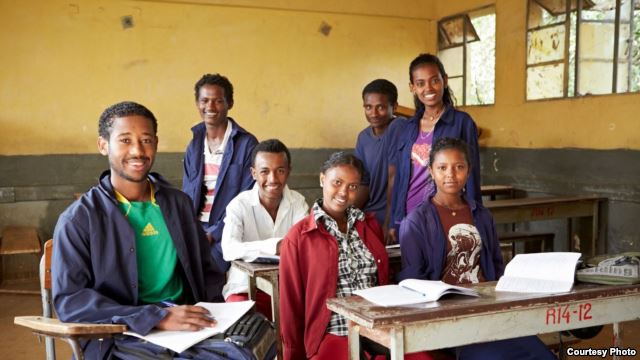 The grant will fund programs targeting children and their families in Bahir Dar, Ethiopia. (Courtesy photo)
The grant will fund programs targeting children and their families in Bahir Dar, Ethiopia. (Courtesy photo)
By Kim Lewis
An education program geared towards reducing the school drop out rate for youths in Ethiopia has received a $1.6 million dollar boost to help keep it going.
SOS Children’s Villages, the world’s largest organization dedicated to orphaned and abandoned children, announced that it received the grant from the Leona M. and Harry B. Helmsley Charitable Trust.
SOS Children’s Villages says the grant will fund EduCare, a program that provides services to raise grade-level completion rates for vulnerable children and their families in the city of Bahir Dar.
“Children in Ethiopia, as well as their families are still experiencing a large amount of poverty,” says Lynn Croneberger, chief executive officer of SOS Children’s Villages USA. “And when families are put in stressful situations, a lot of times the older children need to quit school and go to work and support their families,” she said.
The result is a large population of sibling or youth heads of households who take care of families.
“The families of vulnerable children and youth often times live in such extreme poverty that paying for school, uniforms and supplies is a luxury they cannot afford,” said Sahlemariam Abebe, acting national director of SOS Children’s Villages – Ethiopia.
Education instead of a Exploitation
This financial strain forces children to forgo schooling in order to work and financially help their families,” said Sahlemariam. “Child labor – at its worst – can lead to prostitution and other forms of exploitation.”
Croneberger hopes their EduCare program will provide more resources to children at risk of dropping out of school as well as their parents and the community, so the children can stay in school.
SOS Children’s Villages USA says Educare targets a thousand boys and girls, an estimated 400 caregivers and four partner schools. The funds will provide a stipend, and money for school supplies and food.
Most of the youths are between 13 and 16 years of age “so they’ve hopefully been through early education,” said Croneberger. “But now is the real risky time when they’re being looked at to provide an income for their families.”
Community schools will also receive support.
“A lot of these schools are also struggling so they don’t have a lot of money for the materials that they need for homework, for making it easier for kids to be able to study,” said Croneberger. “So we’ll be supporting the schools themselves as well. That obviously will benefit the community and be a resource for the community.”
—
Join the conversation on Twitter and Facebook.

























